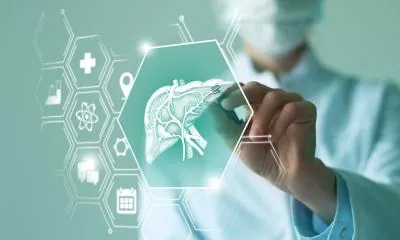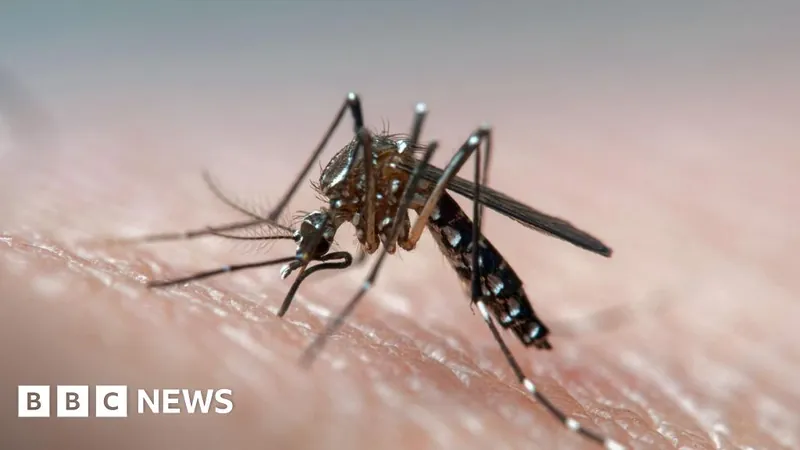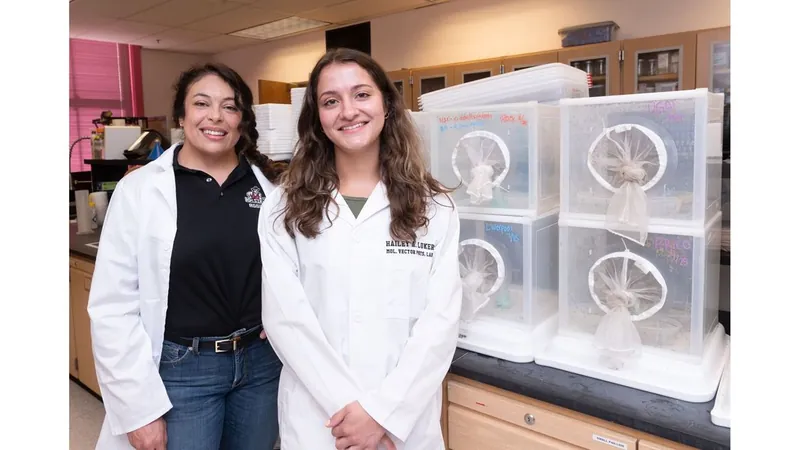
Groundbreaking Liver Discovery Paves the Way for Advanced Treatments for Cardiovascular Disease
2024-10-27
Author: Jia
Groundbreaking Liver Discovery Paves the Way for Advanced Treatments for Cardiovascular Disease
A groundbreaking study published in Science Advances demonstrates new insights that could revolutionize treatments for cardiovascular disease (CVD) and halt the progression of fatty liver disease. This research has unlocked an understanding of the liver's dynamic functions, offering tantalizing possibilities for improved clinical interventions.
Research Insights
Dr. Laeticia Lichtenstein, a leading researcher and Lecturer in Nutrient and Metabolism at the School of Food Science and Nutrition, expressed enthusiasm about the findings. "This discovery reveals that the liver is not static but remarkably adaptable. It senses changes in the body and adjusts its functions accordingly. This understanding will aid surgeons and specialists in treating various liver-related conditions, including gallstones and liver cirrhosis, by shedding light on the origins and mechanisms of these diseases," she stated.
Portal Vein Blood Flow and Cholesterol Levels
The team's innovative research has uncovered the intriguing connection between portal vein blood flow and cholesterol levels. Researchers discovered that a pressure-sensing protein known as PIEZO1 plays a crucial role in detecting the flow rate through the portal vein. This, in turn, initiates a chemical cascade that transforms excess blood cholesterol into bile acids for elimination from the body.
Liver Function and Cholesterol
The liver's primary function is to regulate fat levels in the bloodstream. When fat levels rise, fatty liver disease can develop, leading to severe complications such as cirrhosis, liver failure, and even liver cancer. Cholesterol, a vital fat for bodily functions, comes in two forms: low-density lipoprotein (LDL), often termed ‘bad’ cholesterol, and high-density lipoprotein (HDL), considered ‘good’ cholesterol. While HDL contributes positively to bodily functions, elevated LDL can lead to plaque build-up in arteries, heightening the risk of heart disease and stroke.
Factors Influencing Cholesterol
The origins of high cholesterol can vary, influenced by genetics, specific medications, and existing health conditions. Lifestyle factors also play a significant role, with diets high in saturated and trans fats, inadequate physical activity, obesity, smoking, and excessive alcohol consumption being primary contributors.
Current Treatment Protocols
Current treatment protocols recommend lifestyle modifications as the first line of defense. Physicians may prescribe statins to help reduce LDL levels, but some patients experience side effects or have limited mobility, complicating treatment. The new findings emphasize the importance of understanding blood flow and its regulation of fat levels, which could enhance medication efficacy.
Potential for Targeted Therapies
Professor David Beech, a senior investigator from the School of Medicine at Leeds, added, "Laeticia’s remarkable research opens up an important new pathway for addressing the growing global issue of liver dysfunction and related cardiovascular diseases."
Conclusion
With this novel understanding of the liver’s functionality, the potential for developing targeted therapies could fundamentally change treatment strategies for millions suffering from liver and cardiovascular diseases worldwide. The implications are profound, urging researchers and clinicians alike to rethink traditional approaches to patient care and medication development.




 Brasil (PT)
Brasil (PT)
 Canada (EN)
Canada (EN)
 Chile (ES)
Chile (ES)
 España (ES)
España (ES)
 France (FR)
France (FR)
 Hong Kong (EN)
Hong Kong (EN)
 Italia (IT)
Italia (IT)
 日本 (JA)
日本 (JA)
 Magyarország (HU)
Magyarország (HU)
 Norge (NO)
Norge (NO)
 Polska (PL)
Polska (PL)
 Schweiz (DE)
Schweiz (DE)
 Singapore (EN)
Singapore (EN)
 Sverige (SV)
Sverige (SV)
 Suomi (FI)
Suomi (FI)
 Türkiye (TR)
Türkiye (TR)